
Paul Cézanne PAUL CEZANNE en 2019 Sainte victoire, Comment peindre
Written by: Meryam Joobeur. Produced by: Maria Gracia Turgeon, Habib Attia. Mohamed is deeply shaken when his oldest son Malik returns home after a long journey with a mysterious new wife. 'Mont Sainte-Victoire' was created in c.1906 by Paul Cezanne in Cubism style. Find more prominent pieces of landscape at Wikiart.org - best visual art.

Paul Cezanne Góra Sainte Victoire Margaret Wiegel™. Jul 2023
Montagne Saint-victoire Paul Cézanne Circa 1890. Musée d'Orsay, Paris Paris, France. The Sainte-Victoire peak, near Aix en Provence, is one of Cézanne's favourite motifs. Details. Title: Montagne Saint-victoire; Creator Lifespan: 1839 - 1906;. The Sainte-Victoire peak, near Aix en Provence, is one of Cézanne's favourite motifs.

Digital Imaging and Photography June 2011
Montagne Sainte-Victoire is a limestone mountain ridge in the south of France which extends over 18 km (11 mi) between Bouches-du-Rhône and Var. Its highest point is at 1,011 metres (3,317 ft). The mountain is celebrated for its many appearances in a series of paintings by Paul Cézanne (1839-1906), who could see it from near his house in.

Mont SainteVictoire ArtistPaul Cézanne (French, AixenProvence 1839
Mont Sainte-Victoire seen from the Bibemus Quarry, 1897. In the earlier pictures of Mont Sainte-Victoire, the mountain was seen at a considerable distance, and its place in the broad panorama gave it a greater repose. Here, Cézanne comes closer to the peak; but it is even more inaccessible than before. Instead of suspending the observer above.

Mount SainteVictoire, 190406. Paul Cezanne. Paul cezanne paintings
Paul Cézanne's Mont Sainte Victoire series is now considered one of the most important achievements in the history of landscape painting. However, the series was not always so well-regarded. When the paintings were first exhibited in Paris in 1895, they were met with a mixed reception from both critics and the public.
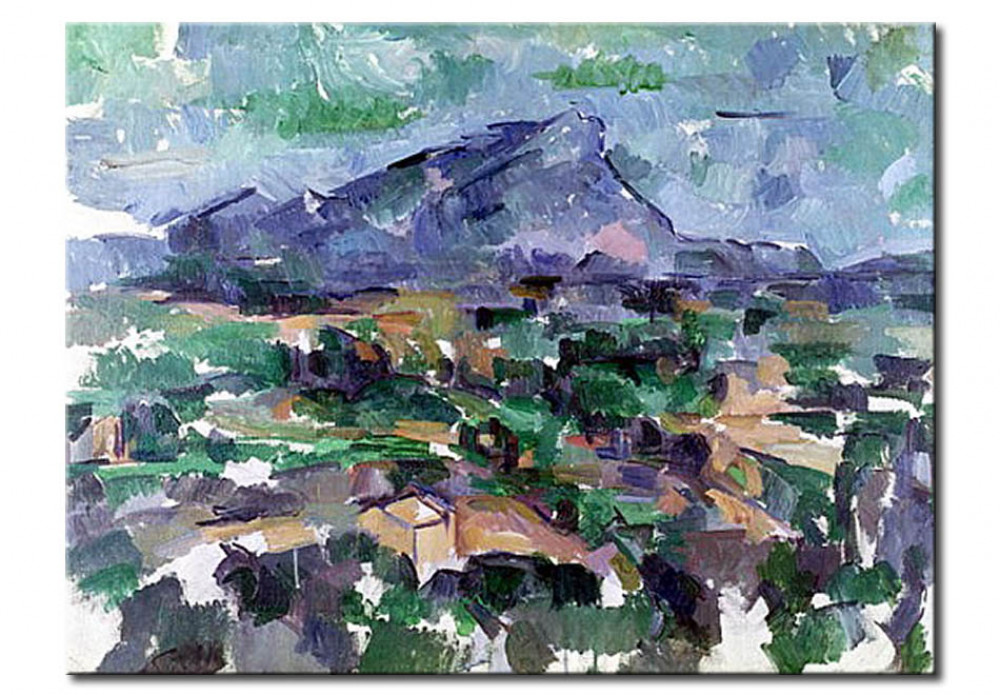
Art Reproduction Montagne SainteVictoire Paul Cézanne Reproductions
2K. In this post, I take a closer look at the Mont Sainte-Victoire series by Paul Cézanne. Mont Sainte-Victoire is a mountain in France that overlooks Aix-en-Provence (the town where Cézanne was born). Cézanne painted it on numerous occasions during his career. The series not only provides an interesting take on landscape painting, but it.
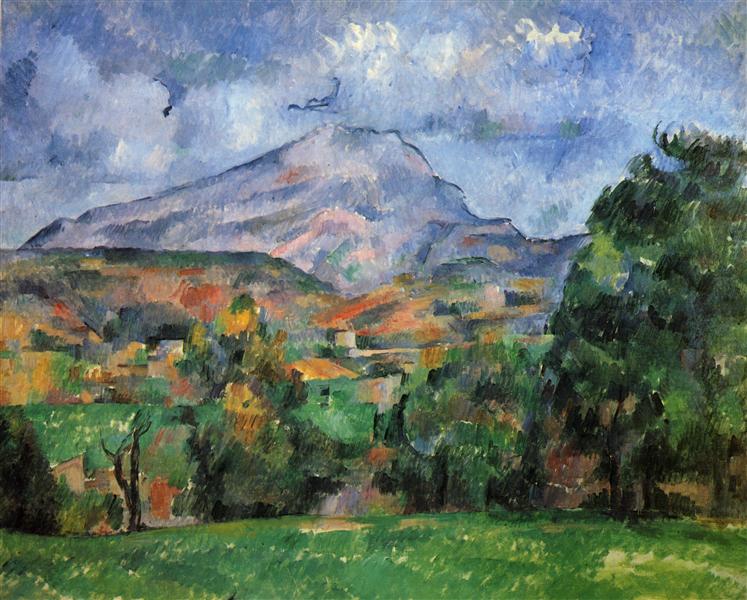
Mont SainteVictoire, c.1890 Paul Cezanne
Mont Sainte-Victoire, 1885-87 by Paul Cezanne. The peak of mont sainte-victoire near Aix attracted Cezanne all his life. He identified with it as the ancients with a holy mountain on which they set the dwelling or birthplace of a god. Only for Cezanne it was an inner god that he externalized in this mountain peak - his striving and exaltation.

Mont SainteVictoire Paul Cezanne Sainte victoire, Paul cezane
The bulk of Cézanne's Mont Sainte-Victoire paintings during this period were from the mid-1880s on. Most of these works were executed with Cézanne situated east of Aix. [2] He was particularly drawn to Mont Sainte-Victoire for its clarity and stark geometric form. In his works, Cézanne generally strove to unify rhythm, form, and color.

Paul Cézanne al Museo Ermitage di San Pietroburgo Tutt'Art
Self Portrait (1875) by Paul Cézanne; Paul Cézanne, Public domain, via Wikimedia Commons. Mont Sainte-Victoire Series (c. 1870s - 1906) by Paul Cézanne in Context. This article will discuss the Mont Sainte-Victoire analysis by Paul Cézanne in more detail, starting with a contextual analysis of his reasons for why he painted it and how the series developed over a span of several years.

Mont SainteVictoire Paul Cezanne. Paul cezanne paintings, Paul
Mont Sainte-Victoire, by Paul Cézanne, 1902-04, in the Philadelphia Museum of Art, Philadelphia, Pennsylvania, U.S. (more) Mont Sainte-Victoire, oil painting created in 1902-04 by French artist Paul Cézanne, one of more than 80 works in which he portrayed the limestone mountain ridge. This rendering was one of his later and more.
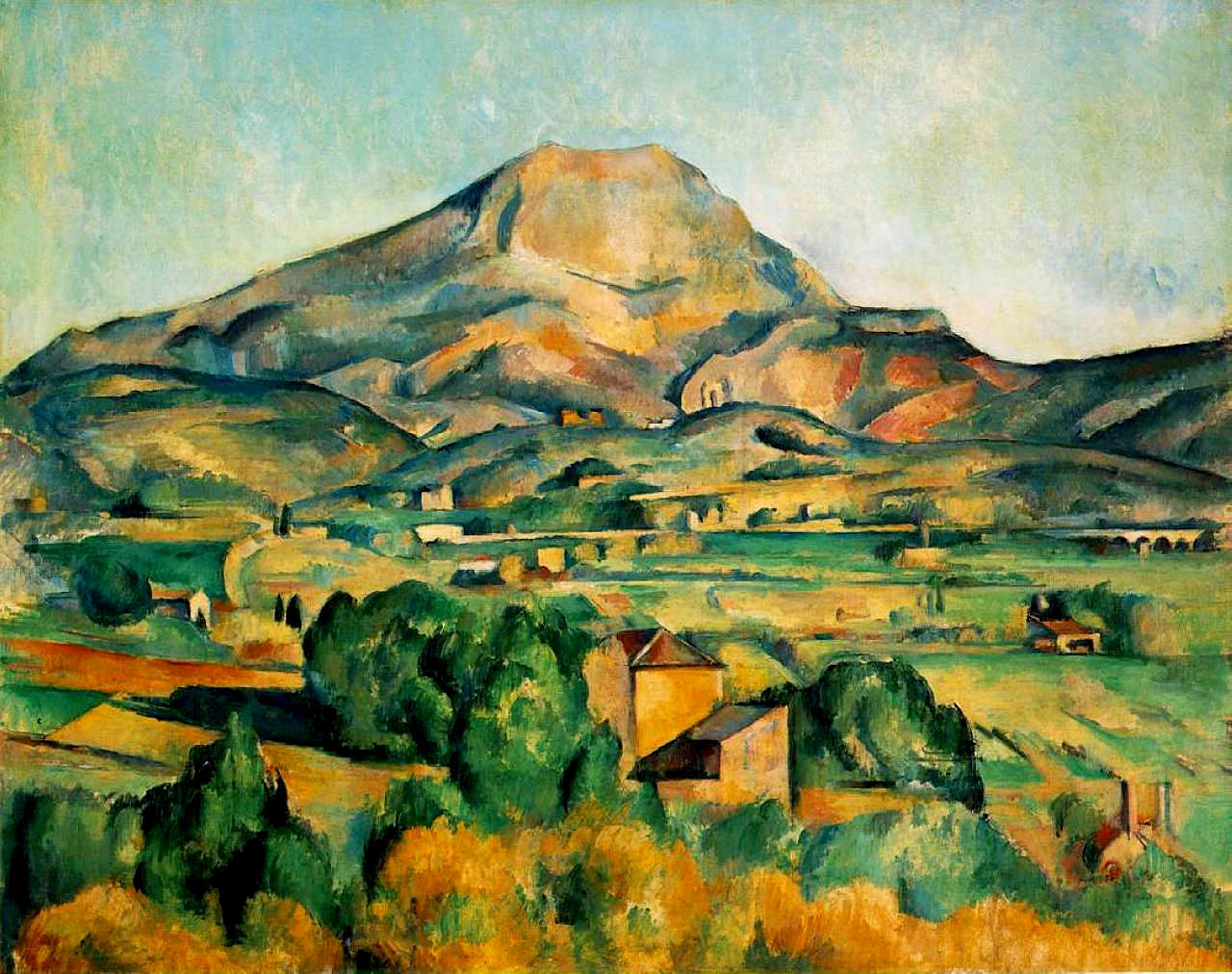
Paul Cézanne (18391906) Tal faràs, tal trobaràs
Sainte-Victoire Mountain that Cezzane painted over and over again. Paul Cezanne was a French artist and Post-Impressionist painter whose work laid the foundations of the transition from the 19th century conception of artistic endeavor to a new and radically different world of art in the 20th century. Cezanne can be said to form the bridge.

paul cezanne « cezanne search results « Art might just art Paul
Paul Cézanne (French, 1839-1906)
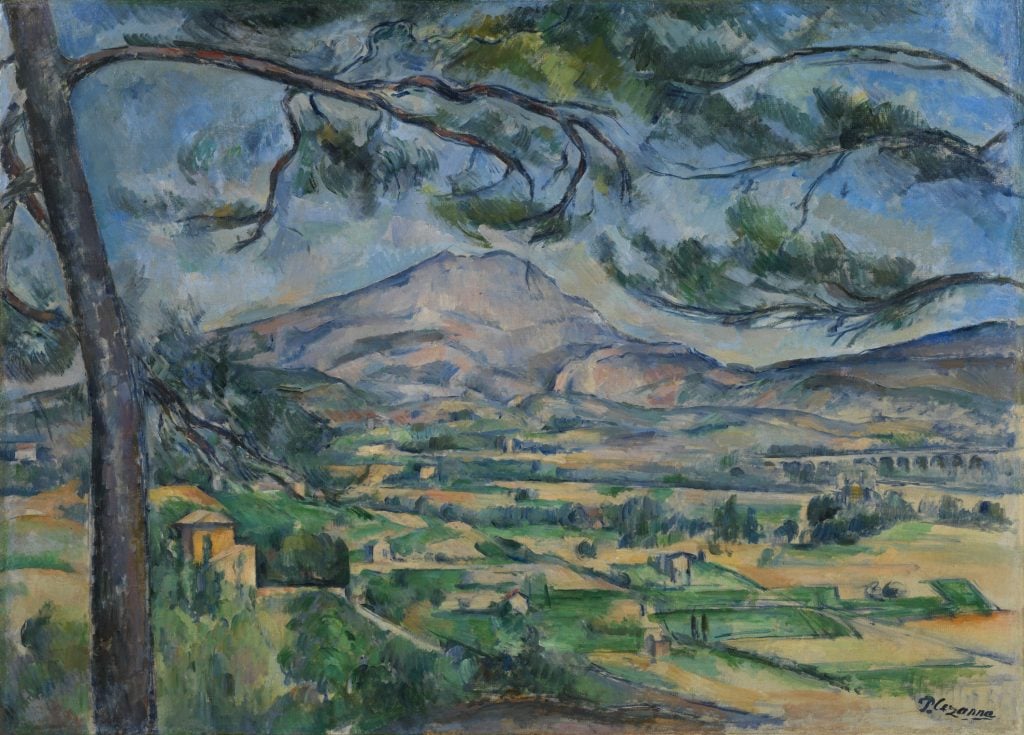
A OnceinaGeneration Cezanne Show Asks Us to Look Through the Artist
A mountain. At 3317 feet (1011 meters) high, the limestone peak of Mont Sainte-Victoire is a pigmy compared to the giants of, say, Mount Fuji and Mount Rainier. But, like them, it still exercises a commanding presence over the country around it and, in particular, over Aix-en-Provence, the hometown of Paul Cézanne.
Paul Cézanne Mont SainteVictoire The Metropolitan Museum of Art
Brotherhood [2018] Directed by: Meryam Joobeur. Written by: Meryam Joobeur. Produced by: Maria Gracia Turgeon, Habib Attia. Mohamed is deeply shaken when his oldest son Malik returns home after a long journey with a mysterious new wife. 'Mont Sainte-Victoire' was created in c.1890 by Paul Cezanne in Post-Impressionism style.
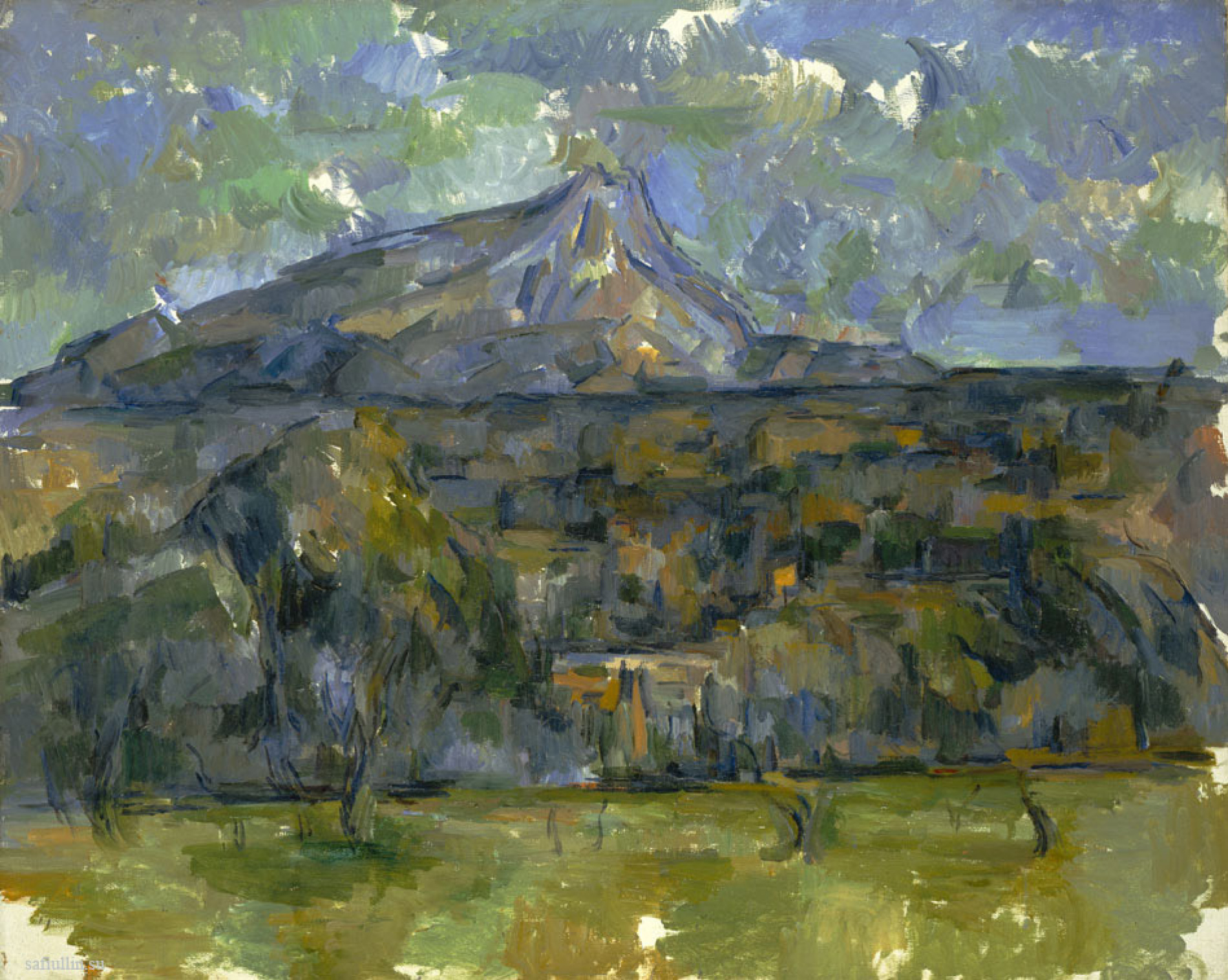
Paul Cezanne Gora Sainte Victoire Margaret Wiegel
Since the 1890s, Cézanne's most important pictorial motif was the mountain Sainte-Victoire to the north of Aix-en-Provence; he captured this landscape more than sixty times in paintings and watercolours; in the Zurich version with the view from Les Lauves, a particularly high degree of abstraction is achieved. The Collection of Prints and Drawings holds a group of drawings and watercolours by.
Reproducciones De Bellas Artes mont Santa Victoria de Paul Cezanne
Paul Cézanne, Mont Sainte-Victoire with Large Pine, c. 1887, oil on canvas, 66.8 c 92.3 (The Courtauld Gallery, London) Comparing the Philadelphia canvas with some of Cézanne's other views of Mont Sainte-Victoire and with photos of the area can help us to grasp some of the perceptual subtleties and challenges of the work.